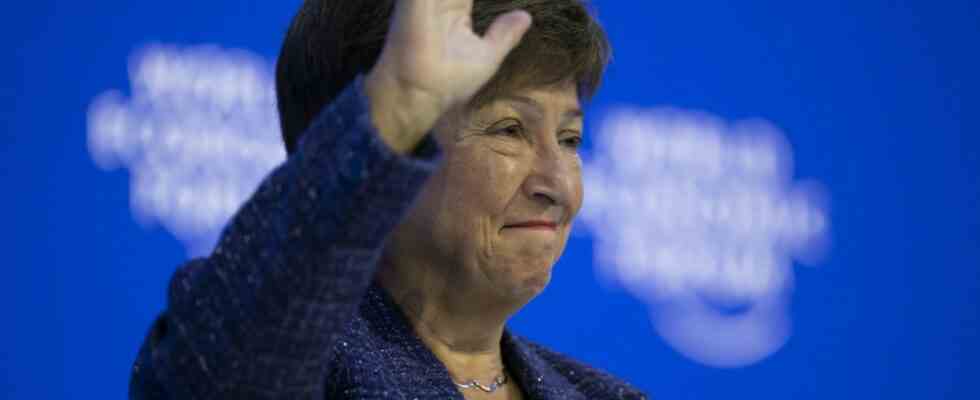The global economy is not in good shape, that much is certain. And yet everyone in Davos agrees that the year 2023 will probably be less bad than feared. Relief spreads. “Hyperpopulists have lost elections. Europe has not frozen. There has been no recession. China has adjusted its policies. And inflation is slowing down,” says economist and Harvard professor Lawrence Summers at the major outlook for the world economy at the end of the World Economic Forum. All of these are good signs that the coming year will not be as bad for the economy as feared.
The head of the International Monetary Fund (IMF), Kristalina Georgieva, agrees. Nevertheless, she urges caution. The situation is “less bad than we expected a few weeks ago,” says Georgieva. “But less bad doesn’t mean good.” For 2023, the IMF forecasts growth of 2.7 percent for the global economy. “It’s not fabulous,” says Georgieva. The world must now be careful that the economic assessments do not switch from “too pessimistic to too optimistic”.
For Germany, on the other hand, the head of the IMF is very optimistic – and surprisingly reveals an increase in the forecast for German gross domestic product on stage. It is quite possible that the IMF will raise the forecast to growth of up to 0.5 percent; in October he had predicted a minus of 0.3 percent.
“In the climate crisis we all need sneakers”
But – and the central bankers and politicians in Davos make no secret of this either – there are also risks: obvious and less obvious ones. The former include the Ukraine war, the aftermath of Corona, uncertainties about China and fears of inflation. Things that have been occupying politics and business for the past twelve months and will continue to do so in 2023. “2022 was a strange, strange year,” says European Central Bank President Christine Lagarde. The world is moving from “defense mode” to “competition mode”.
She sees the world in a new way: ECB President Christine Lagarde.
(Photo: Gian Ehrenzeller/dpa)
In fact, “competition” is the right keyword when it comes to the slightly less obvious risks for 2023. Joe Biden has with his so-called Inflation Reduction Act sparked a race for corporate investment in green technologies. There is a consensus that these investments are needed on a large scale. However, economist Summers emphasizes that healthy competition is needed and not against each other. “It shouldn’t be about bringing others down,” he says, “there needs to be a competition for the best green technologies.”
French Economics Minister Bruno Le Maire agrees that under no circumstances should the subsidy competition escalate into a trade war. One must also be careful that the world does not fragment further over such trade issues. “In the past three years we have entered a new era of globalization,” says Le Maire, “from market-driven to political-power-driven globalization.”
Bruno Le Maire aggressively promotes green investments in France and Europe, but then corrects himself: It’s not about the location of the investments, it’s about the climate.
(Photo: Gian Ehrenzeller/dpa)
Le Maire advertises massively for green investments in Europe – but then adds directly, so as not to give the impression of a “Europe First” attitude: “It’s not about China Firstit’s not about USA First and it’s not about Europe First. It must Climate First mean.”
What leads IMF boss Kristalina Georgieva to her greatest concern for the global economy in the coming year: With all the investments and the subsidy competition between Europe and the USA, one should under no circumstances make the mistake of forgetting the emerging countries. “If we only get the industrialized world super and not the emerging countries, we will all be cooked,” she says.
And then she tells a little story: Two men are being pursued by a bear in the forest. Suddenly he pulls a sneaker out of his backpack. The other asks him why he’s doing that, if he really thinks he’s faster than the bear with sneakers. No, he replies, but it’s not about being faster than the bear either. It’s about being faster than your friend. “In the climate crisis, we all need sneakers,” says Georgieva.

